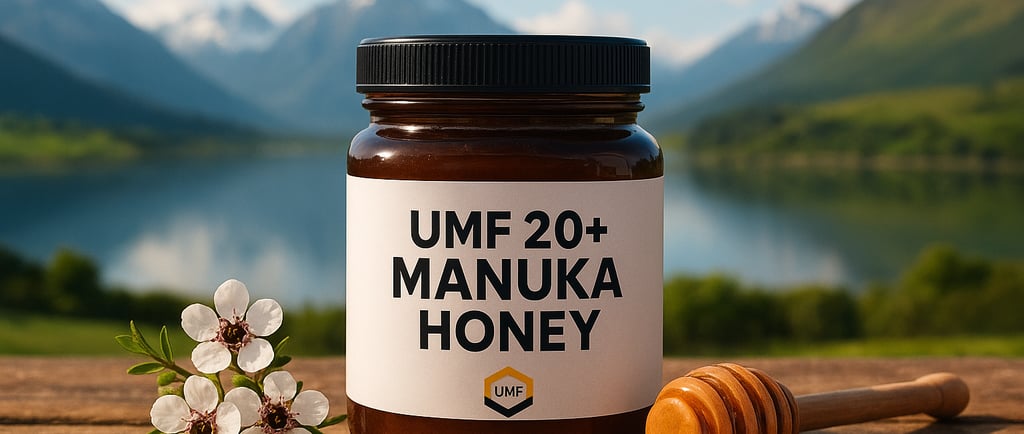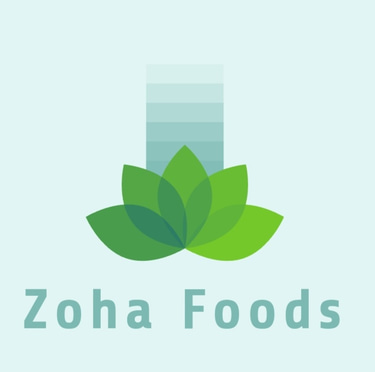What Is Manuka Honey and Why Is It Expensive? (2025 Guide)
Discover what Manuka honey is, why it’s so expensive, and whether it’s worth the price. Learn about UMF, MGO, health benefits, and how to spot real Manuka honey in 2025.
HONEY
Zia Khan
9/8/20254 min read


In 2025, few natural products spark as much curiosity as Manuka honey. Often called “liquid gold”, this rare honey has built a global reputation for its powerful healing properties and premium price tag. If you’ve ever wondered what Manuka honey is and why it’s so expensive, this guide explains everything — from its origins and health benefits to the reasons behind its high cost.
Unlike regular honey, Manuka honey is not just a sweetener — it’s considered a functional food and even a natural medicine in many cultures. But what makes it unique, and is it really worth the investment? Let’s explore.
What Is Manuka Honey?
Manuka honey is a special type of honey produced when bees pollinate the flowers of the Manuka bush (Leptospermum scoparium), a plant native to New Zealand and parts of Australia.
This honey has a thick texture, earthy flavor, and rich golden-brown color. What truly sets it apart is its unique antibacterial strength, which goes far beyond the health benefits of standard honey varieties like clover or wildflower honey.
While most honey contains natural hydrogen peroxide that provides mild antibacterial effects, Manuka honey contains an additional compound called methylglyoxal (MGO), making it far more potent.
The Science Behind Manuka Honey’s Uniqueness
UMF (Unique Manuka Factor)
To measure authenticity and potency, Manuka honey is graded using the UMF rating system. This trademarked scale evaluates the concentration of three key markers:
Leptosperin (unique to Manuka nectar)
DHA (Dihydroxyacetone) – found in Manuka nectar and converts to MGO
MGO (Methylglyoxal) – the powerful antibacterial agent
UMF ratings typically range from UMF 5+ to UMF 20+, with higher numbers meaning stronger antibacterial qualities (and higher price).
MGO Levels
Another global standard is MGO grading. Manuka honey with MGO 100+ has mild strength, while MGO 550+ or higher is considered medical-grade.
What This Means for Consumers
These certifications ensure that you are buying genuine, potent Manuka honey rather than an overpriced imitation. Without these, it’s nearly impossible to know if the honey you purchase is truly authentic.
Why Is Manuka Honey So Expensive?
Many people are shocked when they first see the price of Manuka honey — sometimes 10 to 20 times higher than regular honey. Here’s why:
Limited Geographic Source
Manuka honey can only be produced in regions where the Manuka bush grows naturally. Since this plant thrives almost exclusively in remote parts of New Zealand and some areas of Australia, production is geographically limited.
Short Flowering Season
The Manuka bush flowers for only 2–6 weeks per year, giving bees a very short window to collect nectar. Any bad weather during this period (such as rain or wind) drastically reduces honey yields.
High Production Costs
Harvesting Manuka honey is challenging. Beekeepers often place hives in remote, rugged landscapes, sometimes requiring helicopters to transport equipment. These logistical difficulties drive up costs.
UMF & MGO Certification Costs
To export honey as Manuka, producers must undergo strict laboratory testing for UMF and MGO ratings. Certification, packaging, and government compliance add to the final retail price.
High Global Demand
Manuka honey has become a global health trend, especially in Asia, the Middle East, Europe, and the U.S.. With limited supply and soaring demand, prices continue to climb.
Health Benefits of Manuka Honey
One of the main reasons people are willing to pay premium prices is because Manuka honey offers unique health benefits backed by scientific studies.
Antibacterial & Healing Properties
Proven to kill harmful bacteria, including antibiotic-resistant strains like MRSA.
Used in wound dressings and skin ointments for faster healing.
Supports oral hygiene by reducing harmful bacteria in the mouth.
Immune System Support
Regular consumption of high-UMF Manuka honey may help strengthen the immune system and reduce seasonal illnesses.
Digestive Health
Studies suggest Manuka honey can help manage:
Acid reflux
Irritable Bowel Syndrome (IBS)
Gut microbiome balance
Skincare & Beauty
Its antibacterial and anti-inflammatory qualities make it popular in natural skincare routines, helping treat acne, eczema, and dryness.
👉 For a deeper comparison of everyday honey types, check our blog on Wildflower Honey vs. Clover Honey – Which Is Healthier?.
How to Identify Real Manuka Honey
Because of its high price, fake Manuka honey is common in global markets. To ensure authenticity:
Look for UMF certification label (UMF 5+ to UMF 20+)
Check MGO rating
Confirm origin: “Product of New Zealand” or “Product of Australia”
Buy from trusted suppliers
If the honey doesn’t list UMF or MGO, it’s not genuine Manuka.
Legal Protections and Standards
The New Zealand government has established strict export rules for Manuka honey, requiring lab verification of pollen and chemical markers.
There’s also an ongoing trademark battle between Australia and New Zealand over exclusive rights to the word “Manuka”. Regardless of legal disputes, these protections ensure consumers are not misled by counterfeit products.
How to Use Manuka Honey
Manuka honey isn’t just for tea — here are popular ways to use it:
As food: Spread on toast, drizzle over yogurt, or stir into warm drinks.
For health: Take a spoonful daily for immune support.
For digestion: Mix with warm water before meals.
For skincare: Apply as a natural face mask for acne or dryness.
For wound care: Use medical-grade Manuka honey dressings.
👉 If you’re interested in general wellness uses, also check our Organic Honey Benefits – Complete 2025 Guide.
Is Manuka Honey Worth the Price?
The big question: is paying $50–$200 per jar worth it?
Yes, if you are using it for wound healing, digestive health, immune support, or skincare, because its properties go beyond regular honey.
Maybe not, if you only want honey as a natural sweetener — in that case, high-quality raw organic honey might be a better, more affordable choice.
Ultimately, Manuka honey is expensive because it’s rare, certified, and medically valuable. For many, it’s worth the investment as part of a holistic health routine.
Conclusion
Manuka honey is more than just another sweetener — it’s a rare, medicinal product with proven antibacterial power, limited supply, and global demand. That combination makes it one of the most expensive honeys in the world.
If you decide to buy it, always check UMF or MGO certification to ensure authenticity. And remember: for everyday use, other natural honeys like wildflower or clover may be more cost-effective.
Whether you invest in Manuka or stick with organic raw honey, both can play a role in a healthy lifestyle.
